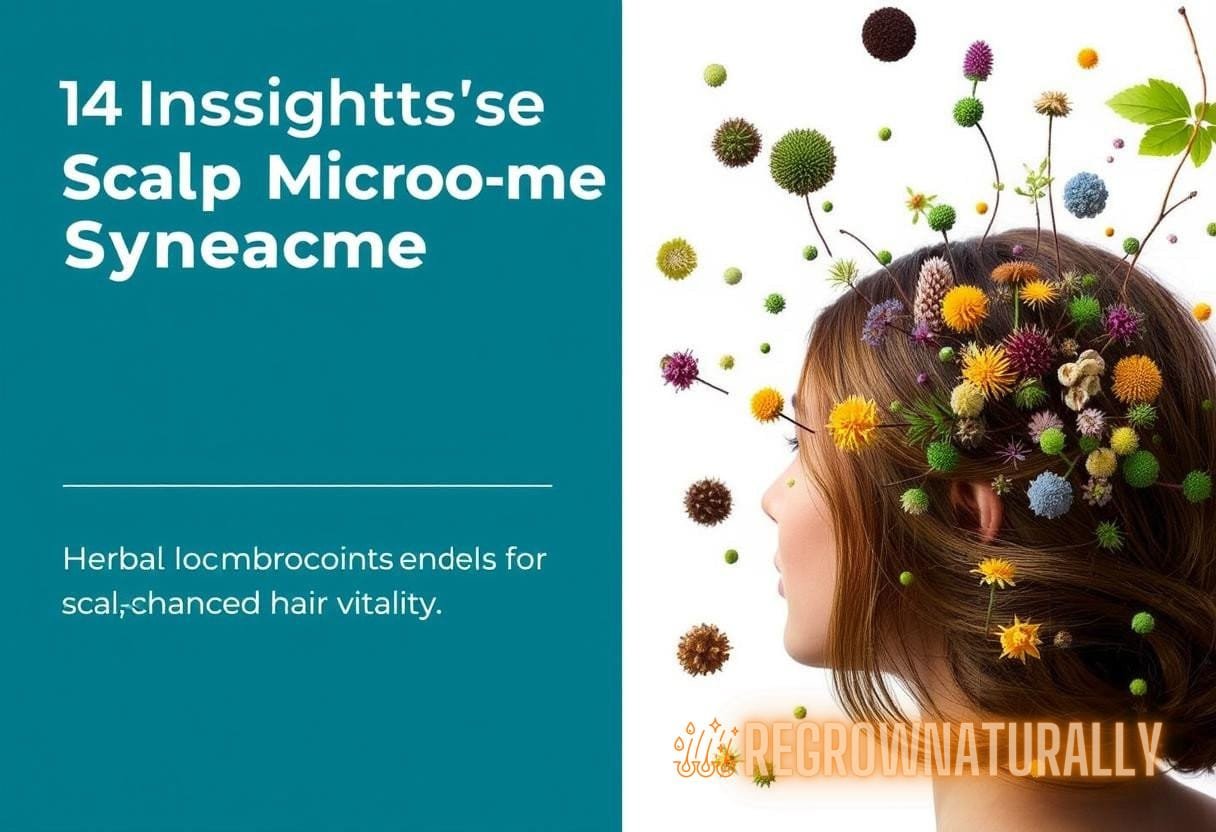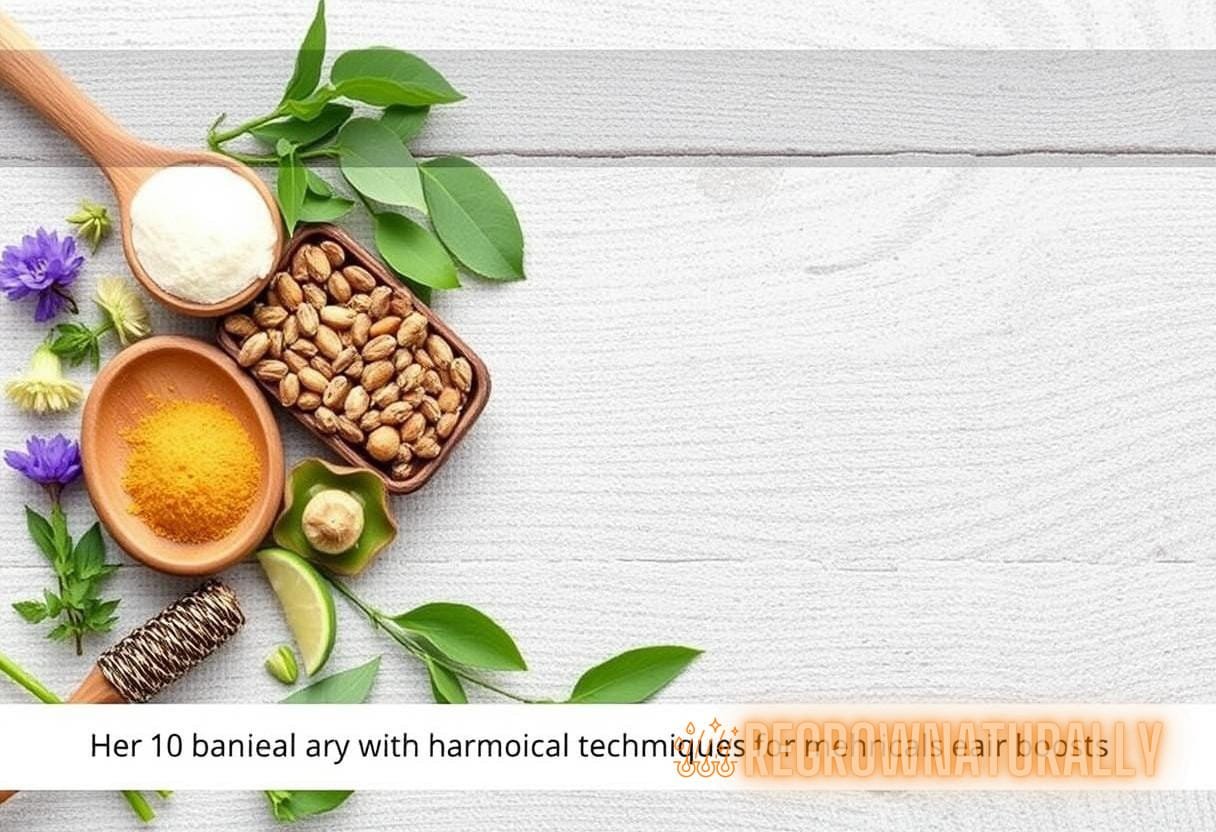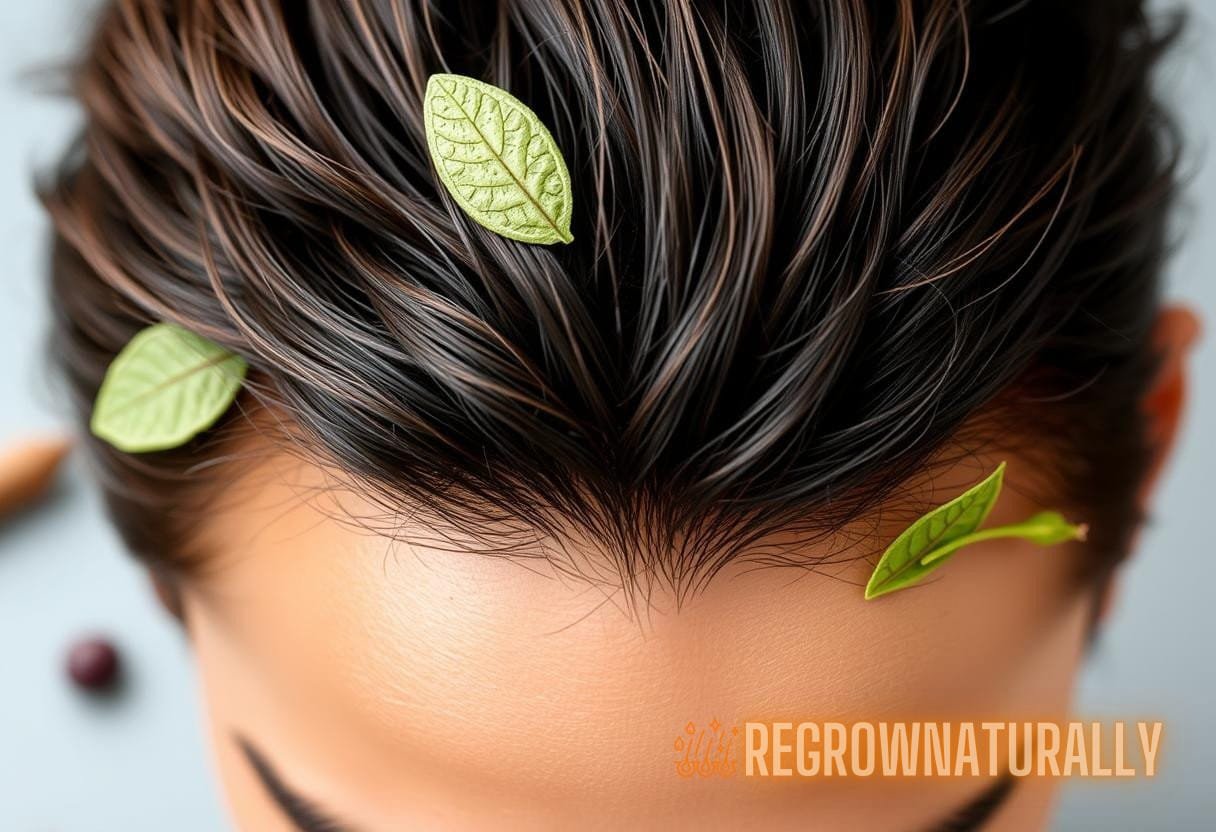Exploring Synergy: How Herbal Compounds and Scalp Microbiomes Interact for Enhanced Hair Vitality
The health of our hair is often perceived as an external concern, but it begins deep within the scalp. One of the most crucial factors influencing hair vitality is the scalp microbiome synergy. This intricate ecosystem not only interacts with hair growth but is also influenced by various herbal compounds. In this guide, we will explore the relationship between herbal remedies and the scalp microbiome, offering insights into how they can work together to promote hair vitality.
The Importance of the Scalp Microbiome
The scalp microbiome consists of a diverse range of microorganisms, including bacteria, fungi, and viruses. This microbial community plays a significant role in maintaining scalp health and, consequently, healthy hair. Understanding the components and functions of the scalp microbiome is essential for anyone looking to improve hair vitality.
Composition of the Scalp Microbiome
The scalp microbiome is composed of various microorganisms, with some of the most common being:
- Staphylococcus: Bacteria that can help protect against pathogens.
- Propionibacterium: Known for its role in maintaining skin health.
- Malassezia: A genus of fungi that can influence scalp condition.
Each of these microorganisms plays a specific role in maintaining the balance of the scalp ecosystem. An imbalance can lead to conditions such as dandruff, seborrheic dermatitis, and hair loss.
Impact of the Scalp Microbiome on Hair Health
Research indicates that a healthy scalp microbiome can:
- Improve hair density and thickness.
- Reduce inflammation and irritation.
- Enhance the overall health of hair follicles.
In contrast, a disrupted microbiome can result in undesirable conditions, such as increased hair shedding or scalp irritations.
Herbal Compounds: Nature’s Hair Care Allies
Herbal remedies have been utilized for centuries in various cultures to enhance hair health. These natural compounds can foster a beneficial environment for the scalp microbiome, creating what can be termed scalp microbiome synergy. Below are some notable herbal compounds recognized for their positive effects on hair vitality.
Aloe Vera
Aloe vera is renowned for its soothing and hydrating properties. It can:
- Provide moisture to dry scalps.
- Help combat dandruff due to its antifungal properties.
- Promote the growth of beneficial microbes.
By applying aloe vera gel directly to the scalp, users can harness its properties in support of a balanced microbiome.
Tea Tree Oil
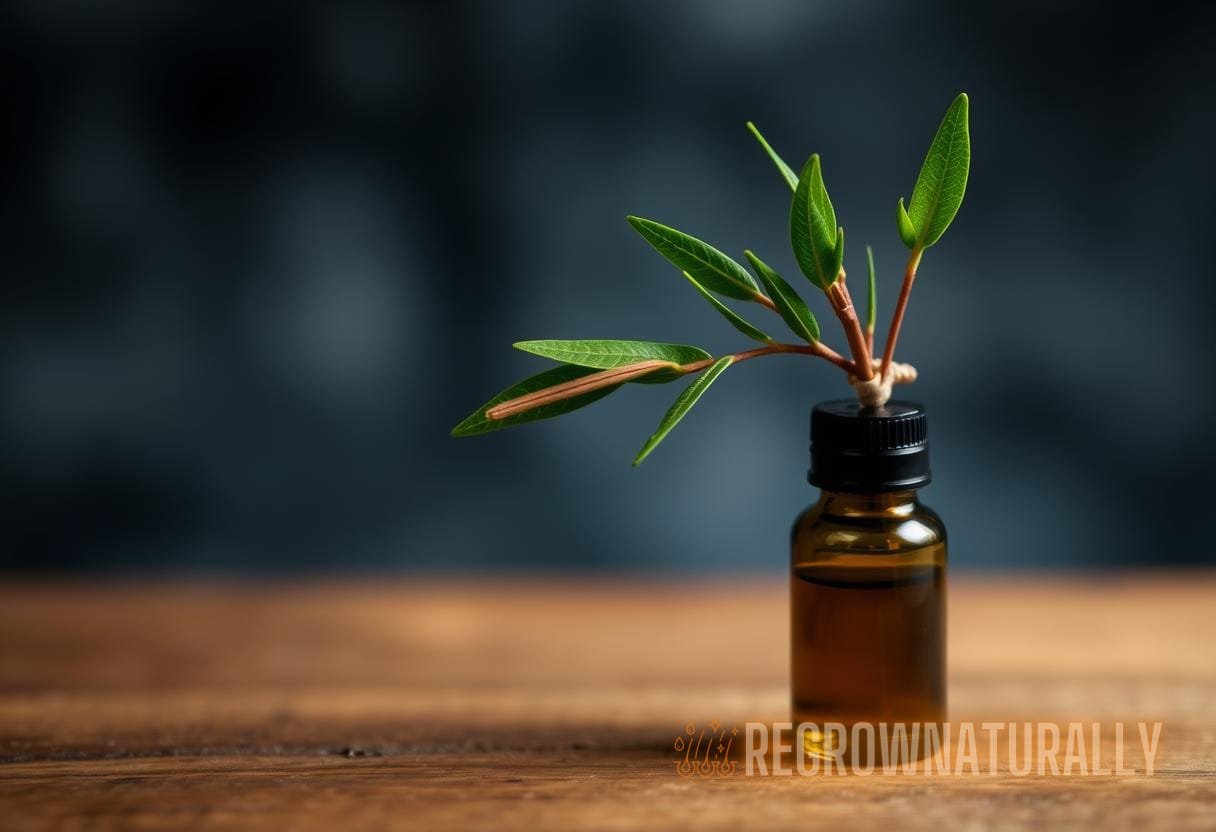
Tea tree oil is celebrated for its potent antimicrobial properties, making it an excellent choice for maintaining scalp health. Its benefits include:
- Reducing scalp inflammation.
- Eliminating bacteria and fungi that can cause scalp issues.
- Encouraging a healthy environment for hair follicles.
Using tea tree oil in diluted forms can help achieve optimal results without causing irritation.
Rosemary Oil
Rosemary oil has gained attention for its ability to promote hair growth and wellness. Its positive effects stem from:
- Improving blood circulation to the scalp.
- Possessing anti-inflammatory properties.
- Encouraging a healthy balance in the scalp microbiome.
This herb can be infused into carrier oils or used in hair formulations to harmonize with the scalp microbiome.
How Herbal Remedies Influence the Scalp Microbiome
The interaction between herbal compounds and the scalp microbiome occurs through various mechanisms. Understanding these interactions can help in harnessing their potential for enhancing hair vitality.
Microbial Diversity Enhancement
Herbal remedies can encourage the growth of beneficial microbes while inhibiting harmful ones. For instance:
- Tea tree oil can help reduce the prevalence of Malassezia, which is often linked to dandruff.
- Aloe vera promotes hydration, favoring microbial health by creating a conducive environment.
Such microbial diversification within the scalp can lead to improved hair health as more beneficial species thrive.
pH Balance Restoration
The scalp has a natural pH level that can be disrupted by various factors. Properly formulated herbal remedies can:
- Help restore the scalp’s natural pH, promoting microbial equilibrium.
- Enhance the effectiveness of the scalp microbiome while preventing pathogenic microorganism proliferation.
Maintaining the right pH can reduce incidences of fungal infections and other scalp issues.
Case Studies: Herbal Remedies and Scalp Microbiome Synergy
Several studies have explored the link between herbal remedies and scalp health, demonstrating the importance of scalp microbiome synergy in promoting hair vitality.
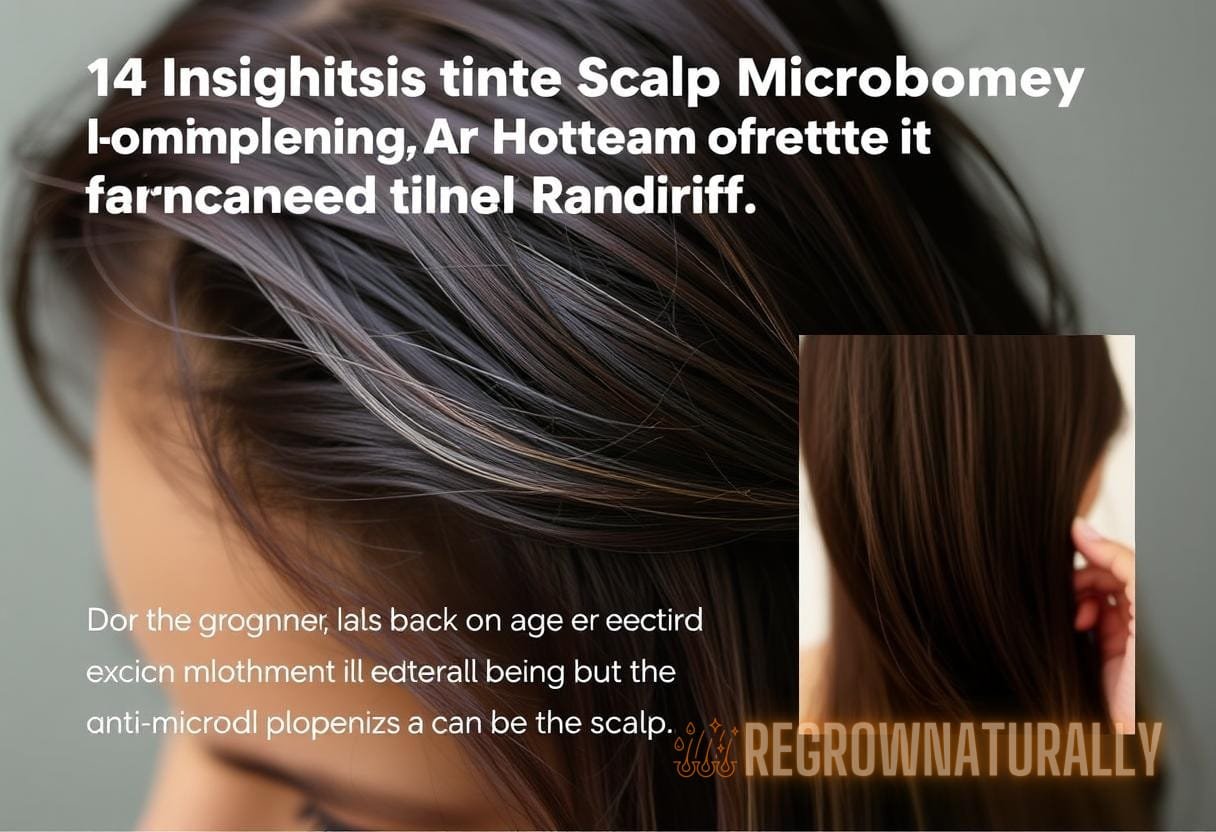
Case Study 1: Effect of Tea Tree Oil on Dandruff
A clinical trial published in the Journal of Dermatitis found that individuals using tea tree oil saw a 41% improvement in dandruff severity compared to a placebo group. This study illustrated how tea tree oil’s antimicrobial properties can benefit scalp microbiome balance, leading to healthier hair.
Case Study 2: Aloe Vera in Hair Growth
A study in the International Journal of Phytotherapy showed that aloe vera application induced hair growth in participants suffering from alopecia. The findings suggested that the soothing and moisturizing effects of aloe vera helped support a healthier scalp environment, enhancing microbial health.
Practical Steps for Implementing Herbal Remedies
Integrating herbal remedies into your hair care routine can be an effective way to promote synergy within your scalp microbiome. Here are some practical steps:
Choosing the Right Products
Look for hair care products that contain herbal ingredients known for their benefits, such as:
- Organic aloe vera gel.
- Tea tree oil-based shampoos.
- Formulations enriched with rosemary extract.
Homemade Herbal Remedies
Creating your own herbal treatments can be rewarding and effective. Some simple recipes include:
- Aloe Vera Hair Mask: Blend aloe vera gel with a tablespoon of coconut oil. Apply and leave for 30 minutes before rinsing.
- Tea Tree Oil Scalp Treatment: Mix a few drops of tea tree oil with a carrier oil like jojoba. Massage into the scalp and leave for an hour before washing.
Regular Scalp Hygiene
Maintaining a clean scalp is crucial to fostering a healthy microbiome. Practices to consider include:
- Regular washing with gentle, natural shampoos.
- Avoiding excessive use of styling products that can clog pores.
- Exfoliating the scalp weekly to remove dead skin cells and promote healthy microflora.
Monitoring Scalp Health
Keeping track of your scalp and hair health is essential for optimizing the scalp microbiome synergy. Consider implementing the following:
- Keep a hair and scalp journal to track changes and reactions to different products.
- Consult with a dermatologist or trichologist if persistent issues arise, as they can provide tailored advice and treatments.
Conclusion
In conclusion, understanding the interaction between herbal compounds and the scalp microbiome opens up promising avenues for enhancing hair vitality. By harnessing the power of herbal remedies in harmony with the scalp’s microbiome, individuals can take significant steps toward achieving luxuriant, healthy hair. The synergy created by these elements is a testament to the intricate relationship between nature and human health.

